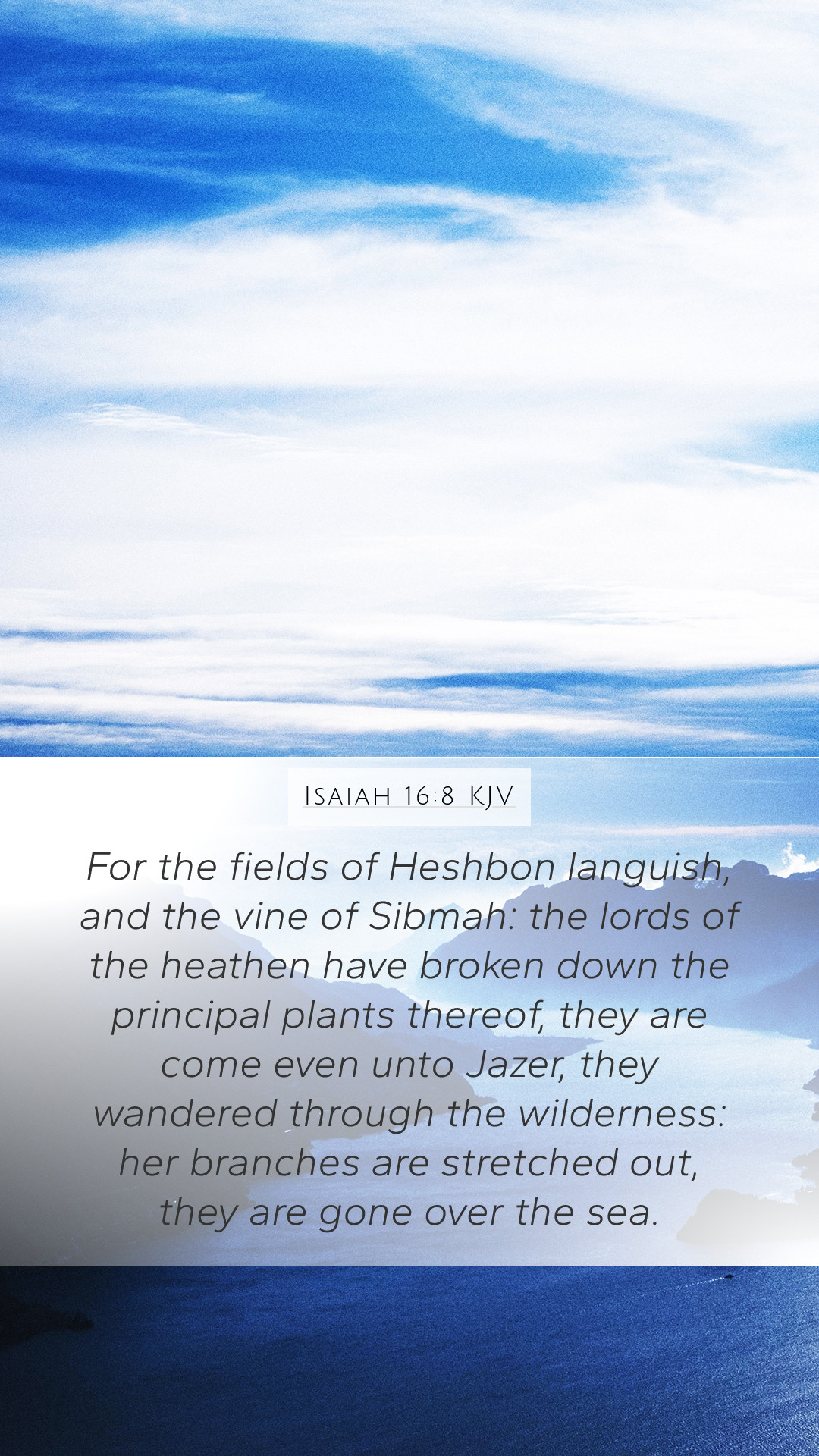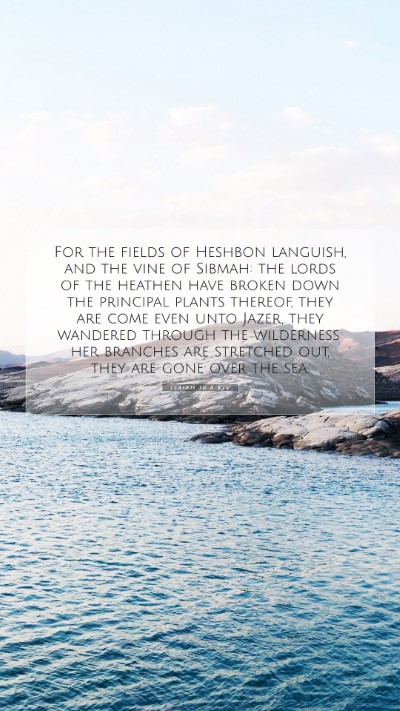Bible Verse Meaning and Commentary: Isaiah 16:8
Isaiah 16:8 presents a significant insight into the historical and spiritual context of the biblical narrative, focusing on the devastation faced by Moab and the call for compassion amidst tribulation.
Verse Text
The verse states:
"For the fields of Heshbon languish, and the vine of Sibmah: the lords of the heathen have broken down the principal plants thereof, they are come even unto Jazer, they wandered through the wilderness: her branches are spread abroad, they are gone over the sea."
Context and Background
Isaiah's prophecy frequently addresses the plight of nations surrounding Israel, and in Isaiah 16, the focus is on Moab, a neighboring nation often in conflict with Israel. The destruction of their vineyards symbolizes not only physical devastation but also spiritual desolation.
Historical Context
Matthew Henry emphasizes that the cities mentioned (Heshbon and Sibmah) were prominent in Moab, significant for their agricultural prosperity. The upheaval signifies a deeper judgement due to Moab's transgressions, as indicated through the prophetic narrative.
Theological Insights
The verse illustrates a theme found throughout Scripture regarding the consequences of national sins—how their agricultural failure reflects a divine judgement. Albert Barnes elaborates on this by explaining how the violence inflicted by foreign nations (the lords of the heathen) leads to an overwhelming loss that extends to their very identity.
Impact of Devastation
- Cultural Loss: The loss of vineyards is indicative of cultural and economic downfall.
- Spiritual Condition: Moab's tragedy serves as a metaphor for spiritual decline, as abundance leads to complacency away from God.
- Call to Compassion: The passage subtly invites the surrounding nations, particularly Israel, to reflect on how they treat their neighbors in times of crisis.
Interpretations from Commentaries
Adam Clarke offers insights into how the physical landscape narrates the emotional narrative of the people. He notes that the reference to "the lords of the heathen" breaking down the vine suggests the fragility of power and the fundamental vulnerability of nations before God’s sovereign decisions.
Lessons from Moab's Downfall
The downfall of Moab serves as a warning and lesson for all nations, revealing the significant principles found in the Bible concerning divine judgement and protecting one's heritage.
Modern Application
The relevance of Isaiah 16:8 extends into modern contexts. The passage compels readers to examine their lives and nations concerning their spiritual health and societal treatment of the marginalized and suffering.
Applying Bible Verses to Daily Life
Engaging with the message of Isaiah can enrich our understanding of compassion and social justice. In studying this verse, consider joining bible study groups or utilizing bible study resources for deeper exploration.
Cross References
- Jeremiah 48: A prophetic message concerning Moab's destiny.
- Numbers 21:28: Historical conquest over Moab by Israel.
- Isaiah 25:10-12: Promise of judgment against Moab.
Conclusion
Overall, Isaiah 16:8 provides profound bible verse meanings that merge historical context with deep theological insights, presented clearly through engaging bible verse interpretations. This verse acts as an enduring reminder to seek compassion and understanding towards those afflicted by circumstances—even in times of strife we must remember the significance of our actions and the importance of upholding justice and mercy as taught through Scripture.


